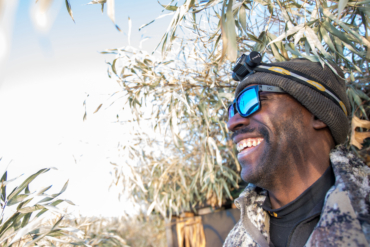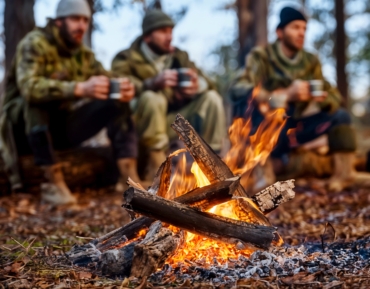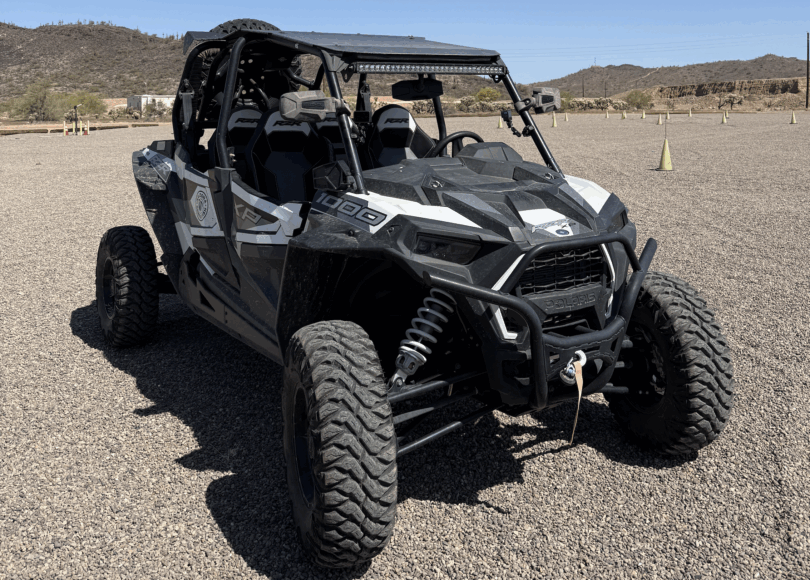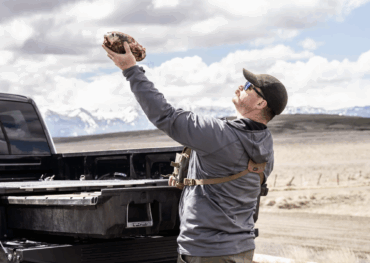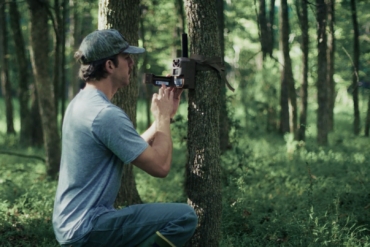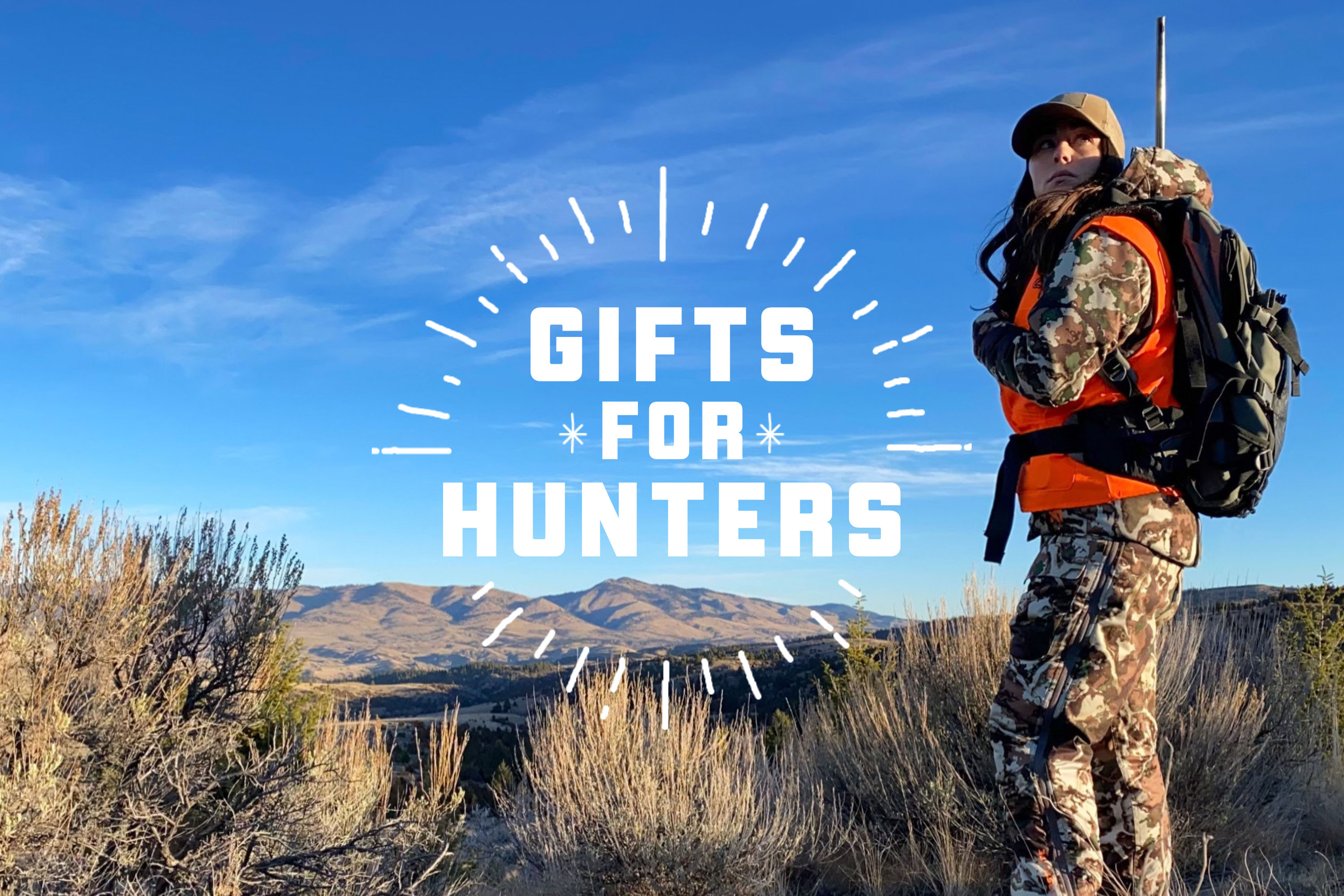British Columbia, Canada, banned grizzly bear hunting 4.5 years ago. A year later, one hunting guide took his provincial government to court. He’s still there today.
Ron Fleming’s mission is to recoup the financial losses he and around 100 others claim the government caused their companies by violating the country’s Wildlife Act. Years into the effort, there’s still no guarantee he’ll complete it.
“They kept stalling; here we are, still working to get the class action suit certified by the judge so it can even go to court. And every time we get close, the [defendants] either don’t have their stuff ready or they need more time or they don’t understand this or that,” he said.
“Generally, they stall until they try to break you — it’s really tough to take [the] government to court.”
That’s certainly been the case for Fleming and his cohort. But why?
High Stakes for Hunting Guides
Doug Donaldson, British Columbia’s minister of forests, lands, and natural resources, banned all grizzly hunting in the province on Dec. 18, 2017. At the time, he said it adhered to widespread public opinion, including representatives of First Nations.
But for Fleming and the long list of plaintiffs, the outcome jeopardized their livelihoods. Fleming and his wife, Brenda Nelson, have operated Love Bros. and Lee at the Finley River headwaters for half a century.
In a typical season before the ban, Fleming said the company would guide about 20 hunters to stalk its government-allocated 12 bears. Each, he said, paid about $15,000 CAD at the time.
Translation? Fleming estimates Love Bros. and Lee has lost $300,000 to the ban each season since. He said he and the rest of the plaintiffs will worry about reopening the hunt later; for now, they seek only damages.
“We took them to court not to get the grizzly bear season opened again. They can do [bear] counts, they can do environmental studies — we’ve got no problem with that,” he said.
“But the outfitters lost millions of dollars to it for no reason other than political reasons, and that’s why we went to court. We can argue about getting the bear hunt opened again afterward, and involve biologists and wildlife professionals. But for now, we’re trying to recover that economic loss.”
Fleming said his group has garnered support from local hunters and various hunting advocates farther afield. It’s expensive to take the government to court, he acknowledged, and doing so over such a drawn-out timeframe has required a team effort.
Government Deems Grizzly Hunting ‘Not in Line’ With Public Values
“It is abundantly clear that the grizzly hunt is not in line with their values,” said Donaldson in 2017. He also said his department consulted with First Nations, other stakeholder groups, and the public in the months leading up to the measure.

Earlier that year, his office banned grizzly bear trophy hunting. He told The Globe and Mail at that time that “people in the province have come to their understanding, their point of view, that the trophy hunting of grizzly bears is not a socially acceptable practice in B.C. in 2017,” and added that the ban also fit into a new wildlife management strategy for the province.
As well, he said, it fulfilled an election promise his then-newly-elected party, the New Democratic Party (NDP), had made.
Problematic Poll?
The most commonly cited public poll that informed Donaldson’s decision to ban all grizzly hunting, though, actually fell a fair amount short of comprehensive.
The online survey conducted by Insights West showed that a robust 74% of British Columbians 18 or older supported the ban. However, the poll only ran for 3 days at the end of August, shortly after the previous trophy hunting ban took effect. And the results reflected just 800 responses.
Those results also reportedly showed that 58% of people who self-identified as hunters supported a ban.
Reaction and Class Action Lawsuit Grounds
The ban rang a gong when it hit. Some, especially the opposing Liberal Party rebuked it as politically motivated. Some pointed out that the NDP’s move appeared to show attentiveness to its constituents.
Some waxed poetic, invoking animist images of the province’s bears “heaving a sigh of relief.”

Many hunters, meanwhile, saw a less promising picture. Because the government did not ask questions about an outright ban during its consultation process, the announcement blindsided some. But what immediately concerned them was that the decision did not revolve around scientific data.
Fleming and his group now say the misstep was critical for their opponents in the suit. “We have a Wildlife Act in British Columbia. And to make a change in the Wildlife Act, it has to be science-based conservation. And this was not, and they admit that. They’ll admit that it was a social, public opinion-based decision,” he said. “It was strictly for their own party’s benefit.”
He told MeatEater that examples of a scientific reason to remand the Wildlife Act would be an unusually heavy winter kill among a certain species, increased forest fires, or rampant disease — “maybe the ticks got into moose,” he said.
“And there wouldn’t be an outfitter [who] would disagree with that. If there’s a problem, you stop hunting and fix the problem, and then someday we can go back out hunting again. But this here was not science-based.”
The suit, filed a year to the day after the ban on Dec. 18, 2018, echoes his assertions.
“The changes to the regulation were not done for a reason connected with the purpose of the Wildlife Act and were done for collateral political, social, or public opinion reasons,” the filing states.
The document goes on to claim damages for every involved guide service on the basis of “negligent misrepresentation, malfeasance in public office, special damages, punitive damages” and more.
Is Grizzly Hunting Sustainable in British Columbia? Government Says Yes
In 2017, the Auditor General of British Columbia completed an independent audit of grizzly bear management, per the provincial government’s website. Focusing on the Ministry of Environment and the Ministry of Forests, Lands and Natural Resource Operations, the audit worked toward “ensuring healthy grizzly bear populations throughout B.C.,” the statement said. It also said it looked at the government’s planning, activities, and reporting regarding grizzly bear management.
Then, in 2019, it “worked with” the British Columbia Conservation Data Center (CDC) on a new approach to conserving grizzlies in the province.
Habitat loss has long played a major role in the health of bear populations at large. In fact, the Auditor General identified it as the primary threat to grizzlies in the province when it conducted its audit 4.5 years ago.
“The greatest threat to grizzly bears is not hunting, but rather, human activities that degrade grizzly bear habitat,” the office asserted.

And though B.C. grizzly populations are relatively steady, their lives are beginning to appear increasingly volatile. One conservation officer reported 129 bear sightings in his urban and suburban region in just a month in 2021, when wildfires forced foraging bears into communities at an increased rate. Previous average for monthly sightings in the same region? 31.
So, where does hunting fit in?
Fleming pointed out repeatedly that resident and nonresident hunters in the province only harvest about 2% of the local grizzly population, which numbers about 15,000 bears. The civil action filing reflects the stat verbatim and compares it to government statistics that conclude a substantially higher percentage take would still be sustainable.
“The Government has amassed detailed information on the grizzly bear hunt since the 1970s and has concluded that the British Columbia grizzly bear hunt is sustainable. The Government currently estimates that a 4-10% annual harvest is a sustainable harvest rate,” the document said.
In fact, the province’s most current data doesn’t list hunting as a threat to grizzlies at all, any time during the past “3 generations” of bears, or about 30 years.

Fleming Says Lack of a Hunt Endangers Bears
Fleming pointed out that even though hunters took a relatively small percentage of the local population before the ban, their involvement could ease tensions between the predators, ungulates like elk and moose, and local communities.
“Because there’s no hunting now, the grizzly bear population is building up where it’s really hurting the moose population. Big boar grizzlies are eating 60-80% of the calf moose, so our moose population is declining because there are too many grizzly bears.
“So if you’re going to manage the ungulates, you’ve gotta manage the predators too, eh?”

The outcome, he said, is unfair to both species. “The bears are suffering because of it. It’s a crime, really.”
Chad Day, president of northern British Columbia’s Tahltan Nation, echoed Fleming’s concerns in an interview with the Terrace Standard.
“The Tahltan people for hundreds, probably thousands of years, controlled predator populations to make sure that we had abundant wildlife populations, especially with ungulates,” Day said.
“If we’re going to only kill ungulates as people and we’re going to protect apex predators like the grizzly bear, it’s just common sense that over time you’re going to have more and more grizzlies and you’re going to have less and less ungulates and fish.”
Lawsuit Continues to Stall
Court records show that a consistent holding pattern prevails in the civil action suit. On Oct. 25, 2019, the court ordered that the parties “leave to seek another opportunity to appear” before the judge, Madam Justice McDonald. A month later, the order reads “leave to apply for another Trial Management Conference.
On Dec. 3, 2021, the court decided it would hear the certification hearing and the defendants’ application in May. On May 16, it adjourned to June 3 after Fleming filed an affidavit dealing with an “attestation clause,” which concerns itself with legal executive formalities.
“I think they just try to wear you down until you just say ‘the hell with it,’” he said. “But on this one, we’re not quitting. It’s like a poker game: you’re getting down to your last coin, you might as well throw it in the pot, too, eh? You’ve already got lots in there.”
To view documents including the class action suit and records of hearings, go to justice.bc.gov and have your credit card ready for small associated fees.




